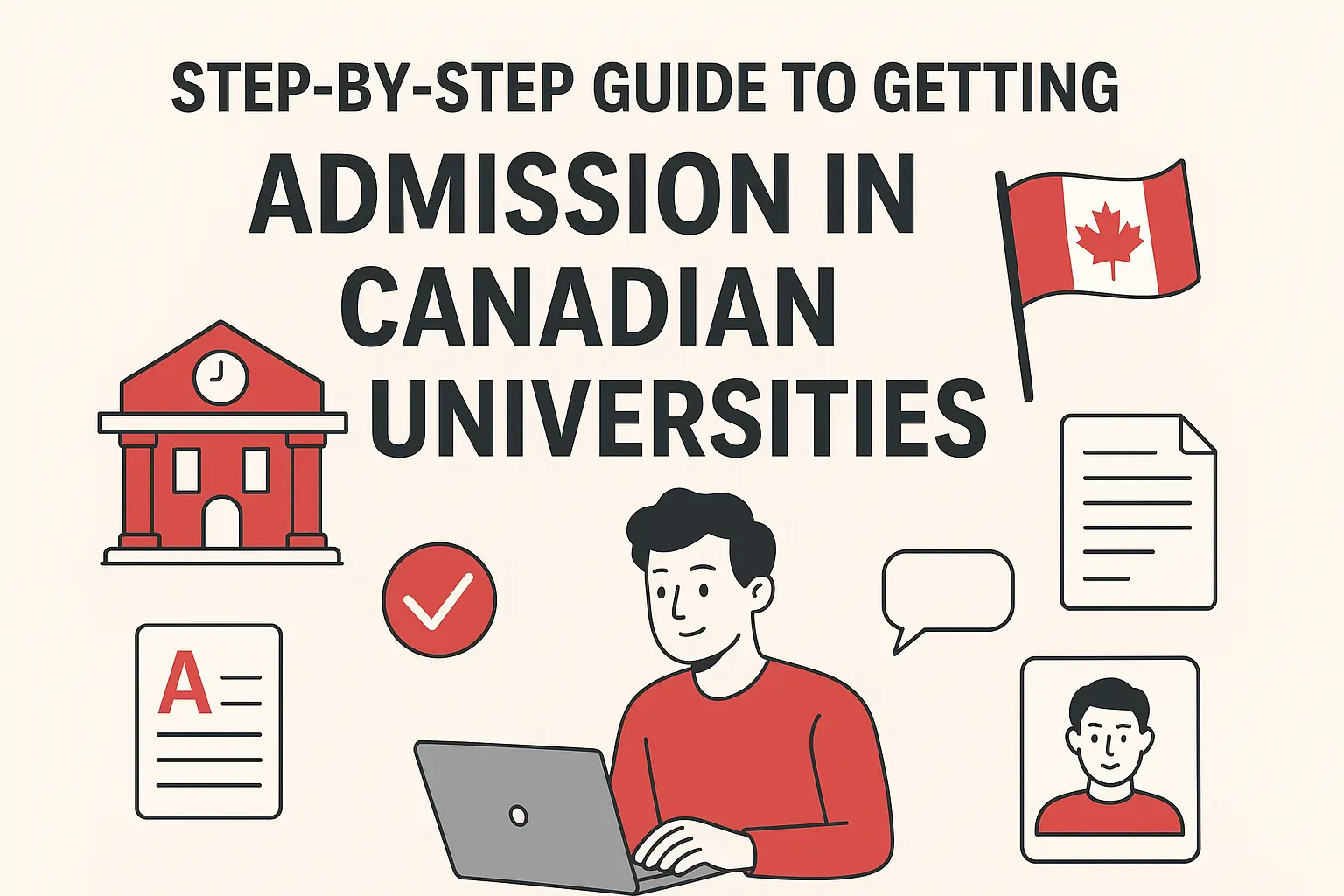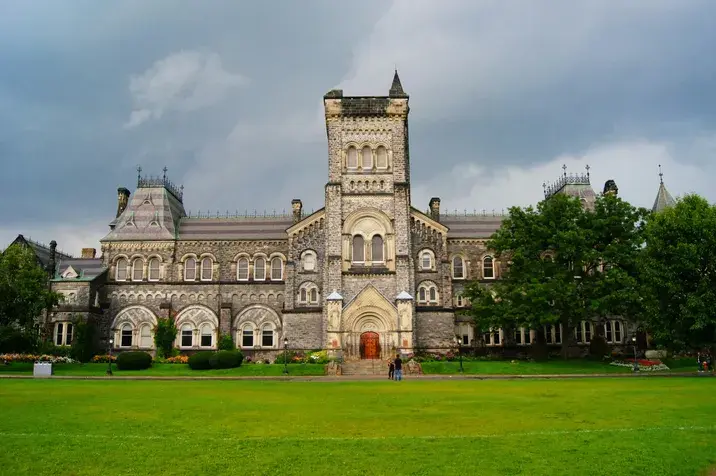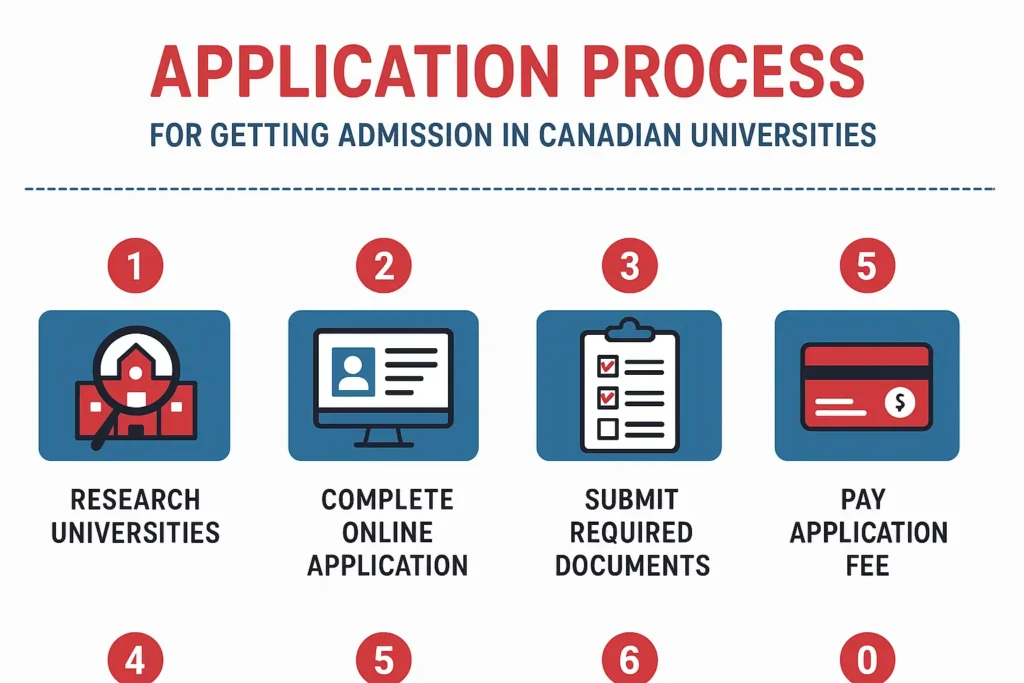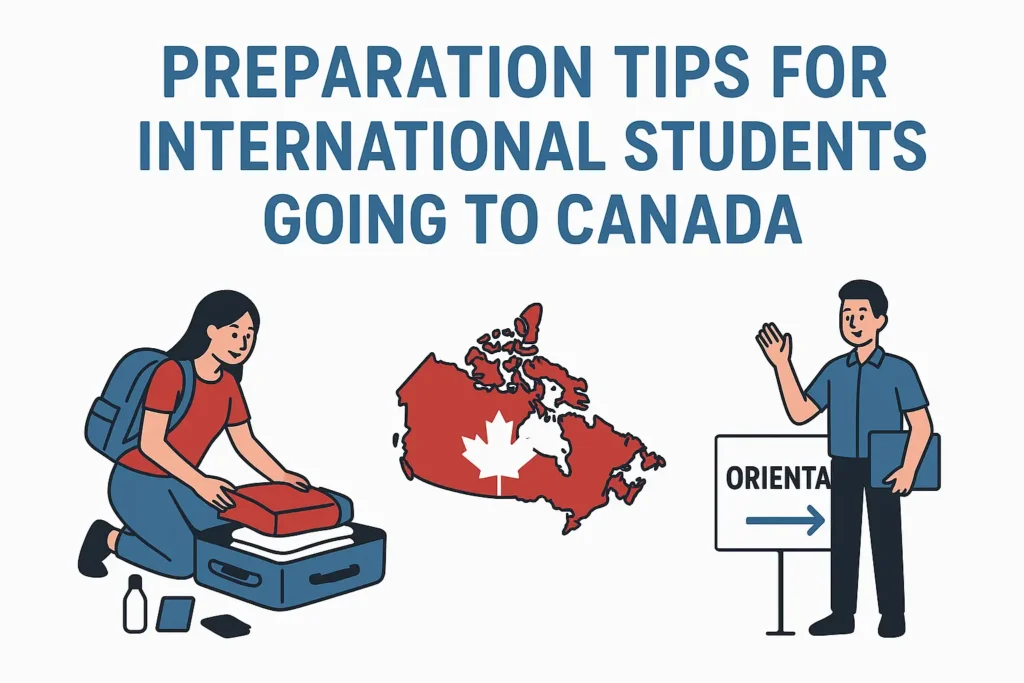Blog
Step-by-Step Guide to Getting Admission in Canadian Universities

Canada has become one of the top study destinations for international students. Canadian universities are highly respected around the world for their academic excellence and diverse student population, but admissions can be highly competitive. In fact, many leading Canadian universities require a combination of high school grades, standardized test scores, extracurricular activities, and personal essays. While the specific requirements and procedures may vary, most Canadian universities use a holistic approach to evaluate applicants. This means prospective applicants need to aim to stand out academically and also demonstrate promise as positive contributors to campus life. If you are also exploring cost-effective study options, don’t miss our guide on the Top 5 Affordable Countries for International Students in 2025 for more budget-friendly opportunities.
Best Canadian Universities for International Students

The best Canadian universities for international students are:
- University of Toronto
- University of British Columbia
- McGill University
- University of Alberta
- McMaster University
- Universite de Montreal
- University of Calgary
- University of Waterloo
- University of Ottawa
- University of Western Ontario
Application Process for Canadian Universities

The general application process for Canadian universities is similar to that of the US. There are two basic requirements for admission to university for Canadian students:
- The successful completion of high school
- Competency in one of the two official languages (English in most of Canada, and either English or French in Quebec and New Brunswick).
Application processes vary by province. In some provinces, students can apply through a central application service. In others, you must apply directly to the university. So, make sure you check all the requirements before applying.
The application process may vary slightly from university to university, so be sure to check the admission requirements and process for each university you are interested in attending. Additionally, some universities may have specific requirements for international students, so be sure to research these requirements as well.
Research
Research the universities you are interested in attending, as well as their academic programs and admission requirements.
Check intake dates
Figure out which intake is correct for you. The intake process in Canada is generally conducted in the academic terms of Fall, Winter, or Spring.
Meet admission requirements
Visit the websites of the universities you are interested in and check for the application process, application deadlines, and admission requirements for international students (check country-specific requirements if available). Ensure that you meet the academic and English language proficiency requirements for the universities you are applying to.
Complete the online application
Most universities have an online application process that requires you to submit your personal information, academic records, and test scores (if applicable).
Submit additional materials
Some universities may require additional materials such as essays, letters of recommendation, and transcripts. Be sure to check the requirements of each university and submit the required materials by the deadline.
Pay the application fee
Most universities require an application fee, which is typically around $100 CAD.
Wait for a decision
After submitting your application, you will receive a decision from the university. If you are accepted, you will receive an offer of admission and information about next steps, such as enrolling in courses and obtaining a student visa (if required).
Apply for scholarships
You can apply for the scholarships available for international students to fulfill your financial requirements for the program. International students are offered various need or merit-based scholarships to study in Canada.
Application Checklist
Most universities in Canada require students to submit a variety of documents for the application. Here is a list of documents generally asked for, along with your completed application forms:
- Educational qualifications
- Proof of English language proficiency
- Standardized test scores
- Personal statement or essays
- Letters of recommendation
- Financial proof
- Work experience
Cost of Getting Admission in Canadian Universities
When it comes to tuition fees and costs, Canada trumps its competition. Unlike the US and UK, tuition fees in Canada are significantly lower, even for international students.
While tuition fees vary for each university and are also based on the program you are going for, the average tuition fee for international students in an undergraduate program in Canada ranges from CAD 20,000 to CAD 30,000 per year. This tuition fee does not cover application or student visa costs.
On top of the tuition fees, most students have to pay for accommodation and other expenses like health insurance. The average cost of accommodation is usually between CAD 8,000 and CAD 10,000 per year, depending on where your university is located and what type of housing you select.
It is important to note that need-based financial aid is not available for international students; additionally, merit-based scholarships are extremely limited for international students. International students in Canada have a variety of other financial aid options, however:
- Scholarships
- Student loans
- Work-study programs
- Private sponsorships
Learning and Academic Life at Canadian Universities

Canadian universities offer a wide range of programs, catering to diverse interests and career aspirations. Some of the most common types of programs offered at Canadian universities include:
- Undergraduate Programs
- Graduate Programs
- Professional Programs
- Continuing Education Programs
- Certificate and Diploma Programs
- Co-operative Education Programs
- Online Programs
Overall, Canadian universities offer a diverse range of programs that cater to the needs and interests of students from different backgrounds and career aspirations. Some undergraduate programs at top universities are harder to get into than others. The hardest undergraduate programs to get into in Canada include the Bachelor of Commerce at the University of British Columbia, Mechanical Engineering at McGill University, Smith Bachelor of Commerce at Queen’s University, Engineering Sciences at the University of Toronto and the McMaster University Bachelor of Health Sciences.
Preparation Tips for International Students Studying in Canada

When moving to a new country, it is important to prepare yourself for the new life. Here are five tips for international students going to Canada in addition to the college application process:
- Make sure you have the right degrees
- Understand the student visa process
- Research about Canada
- Familiarize yourself with the climate
- Learn about the cost of living
- Understand Canadian laws and regulations
- Join student groups and organizations
- Make necessary arrangements
- Stay connected with your loved ones
To get detailed and official guidance, international students should always check the Government of Canada – Study Permit Guide. This trusted resource explains visa requirements, financial proof, and eligibility criteria in depth, ensuring that applicants avoid mistakes and strengthen their chances of admission to top Canadian universities.
Conclusion
Remember, competition for admission to Canadian universities can be strong, so it’s important to put your best foot forward and showcase your strengths and abilities in the best light possible. It is important to take the time to research and prepare for the application process and to take advantage of all the opportunities available to you for application to Canadian universities. You need to consider your personal goals and preferences when making your decision. Use the tips provided here to increase your chances of getting accepted.
